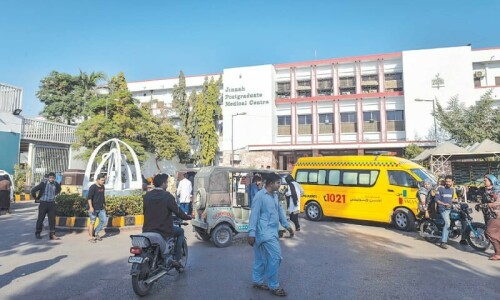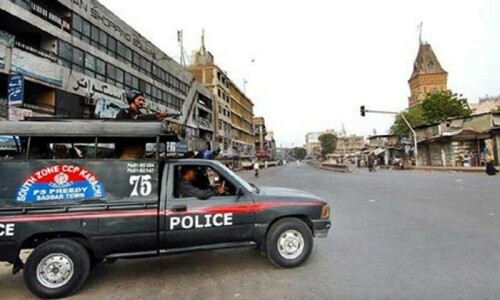KARACHI: “Since 2000, most countries of the world have been conducting census regularly. The only four exceptions are Lebanon, which last conducted its census in 1936; Afghanistan, which last conducted census in 1975; Somalia, which last did it in 1961; and Pakistan, which haven’t conducted census since their last one done in 1998,” said Dr Mehtab S. Karim during his presentation ‘Conducting census in Pakistan — where do we stand?’ organised by Irtiqa Institute of Social Sciences and Malir University of Science and Technology at the PMA House here on Saturday.
Speaking on the issues of census, what has happened so far and what needs to be done, Dr Karim said there were legal requirements to conduct census regularly, after every 10 years, in accordance with the Constitution. “Census provides the basis of political representation in the national and provincial assemblies. It is needed for the delineation of constituencies. Census is also needed for the distribution of funds to the federating units by the National Finance Commission. Then the delineation of quota for civil posts also depends on census,” he explained.
Pakistan conducted proper census in 1951, 1961, 1972, 1981 and 1991. The housing census held later could not be accepted due to too many discrepancies in calculating the average household size. After that there have been several delays in conducting the sixth census owing to the law and order situation, political implications of census results in terms of representation in the national assembly and distribution of funds among the provinces. Here Sindh’s share warrants change due to the province’s increasing population.
Dr Karim explained that in the 1951 census the population of Sindh was 18.1 per cent of the country’s entire population. In 1961, it increased to 19.6pc, which went up to 21.8pc in 1972 and 22.8pc in 1981. In 1991, it was 23pc of Pakistan’s population. “So Sindh’s population is growing more rapidly than the other provinces’ even though the birth rate here is about the same as in the other provinces,” said Dr Karim.
“The population in Sindh is increasing due to migration. In 1998, more than one million people migrated to Sindh from Punjab followed by people from Khyber Pakhtunkhwa and Balochistan. Of these Karachi received the most migrants as 21pc of all who migrated to Sindh ended up in Karachi,” he said.
“And yet,” he said, “the share of Sindh did not increase as was the demand of the increasing population here. This is because the Census Bureau said that of the city’s population, two million were aliens so they cannot be included in the official count.”
But, it was explained that there were also major discrepancies due to under-reporting of the rural population and wrong estimates of household size, which has resulted in our missing some seven to eight million people. “The official population of Sindh is estimated at 45 million at the moment but according to my estimate it should be around 50 million,” said Dr Karim.
“The only recourse is to have the census conducted as soon as possible.”
Published in Dawn September 11th, 2016














































Dear visitor, the comments section is undergoing an overhaul and will return soon.